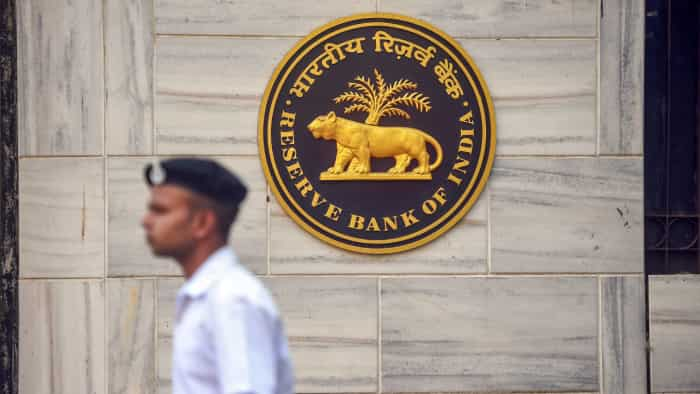Pakistan taken off FATF's grey list: India says Pak needs to continue taking credible, verifiable action against terrorism

The world should remain clear that Pakistan must continue to take "credible, verifiable and irreversible" action against terrorism, India said on Friday after anti-money laundering watchdog FATF removed the neighbouring country from its 'grey list'.
The Paris-based Financial Action Task Force (FATF) took off Pakistan from a list of countries under increased monitoring, also known as the 'grey list'.
"It is in global interest that the world remains clear that Pakistan must continue to take credible, verifiable, irreversible and sustained action against terrorism and terrorist financing emanating from territories under its control," External Affairs Ministry spokesperson Arindam Bagchi said.
He was replying to media queries on the issue.
"As a result of FATF scrutiny, Pakistan has been forced to take some action against well-known terrorists, including those involved in attacks against the entire international community in Mumbai on 26/11," Bagchi said.
"We understand that Pakistan will continue to work with the Asia Pacific Group on Money Laundering (APG) to further improve its Anti Money Laundering (AML) /Counter Terror Financing (CFT) system," he added.
Pakistan has been taken off the 'grey list' in the wake of Islamabad's "high level political commitment" in dealing with the menace and carrying out reforms in its existing monitoring mechanism, according to the watchdog.
The decision was taken by the FATF in its plenary held in Paris on October 20-21.
Later at a virtual press conference, FATF president T Raja Kumar, who is from Singapore, said Pakistan has largely addressed all the 34 items given by the FATF.
However, he said, Pakistan still needs to continue to work in this regard and the FATF encourages Pakistan to cooperate with the FATF's Asia Pacific Group to combat financial terrorism and money laundering.
Pakistan taken off from FATF's grey list; Myanmar in black list
After four years, Pakistan has been taken off from the infamous grey list of FATF, the global watchdog on terror financing and money laundering, in the wake of Islamabad's "high level political commitment" in dealing with the menace and carry out reforms in its existing monitoring mechanism.
Significantly, for the first time, the FATF put Myanmar in the "high risk jurisdictions subject to a call for action", often referred to as the watchdog's black list. Iran and North Korea continue to be in the black list.
In other decisions, Russia was barred from participating in future projects of FATF.
In a statement, the Financial Action Task Force (FATF) said it welcomes Pakistan's significant progress in improving its anti-money laundering, combating financial terrorism (AML/CFT) regime.
The decision was taken by the FATF in its plenary held in Paris on October 20-21.
Later at a virtual press conference, FATF president T Raja Kumar, who is from Singapore, said Pakistan has largely addressed all the 34 items given by the FATF.
"The FATF looked into the mechanism put in place by Pakistan to combat financial terrorism and money laundering. The team went down to Pakistan and found the high level political commitment of Pakistan not only act to combat financial terrorism and money laundering but ensuring reforms and strengthen the system," he said.
Kumar said there has been significant progress on the part of Pakistan to combat financial terrorism and money laundering which resulted Pakistan being taken off from the increased monitoring mechanism or the grey list.
However, he said, Pakistan still needs to continue to work in this regard and the FATF encourages Pakistan to cooperate with the FATF's Asia Pacific Group to combat financial terrorism and money laundering.
The FATF statement said Pakistan has strengthened the effectiveness of its AML/CFT regime and addressed technical deficiencies to meet the commitments of its action plans regarding strategic deficiencies that the FATF identified in June 2018 and June 2021, the latter of which was completed in advance of the deadlines, encompassing 34 action items in total.
"Pakistan is therefore no longer subject to the FATF's increased monitoring process. Pakistan will continue to work with APG to further improve its AML/CFT system," the statement said.
With Pakistan's exit from the "grey list", Islamabad may now free try to get financial aid from the International Monetary Fund (IMF), the World Bank, the Asian Development Bank (ADB) and the European Union (EU), to boost its cash-strapped economy.
On Russia, Kumar said the move comes in the wake of Moscow's invasion of Ukraine. He said Russia's actions continued to violate FATF's core principles, which aim to promote security, safety and integrity of financial systems.
In 2018, the FATF had found Pakistan's deficiencies in its legal, financial, regulatory, investigation, prosecution, judicial and non-government sectors to fight money laundering and combat terror financing, which are considered serious threats to the global financial system.
Till June, Pakistan had completed most of the action items given to it by the FATF in 2018 and only a few items that were left unfulfilled included its failure to take action against UN-designated terrorists, including Jaish-e-Mohammed (JeM) chief Masood Azhar, Lashker-e-Taiba (LeT) founder Hafiz Saeed and his trusted aide and the group's "operational commander", Zakiur Rehman Lakhvi.
Azhar, Saeed and Lakhvi are most-wanted terrorists in India for their involvement in numerous terror acts, including the 26/11 Mumbai terror attacks and the bombing of a Central Reserve Police Force (CRPF) bus in Jammu and Kashmir's Pulwama in 2019.
A 15-member joint delegation of the FATF and its Sydney-based regional affiliate -- Asia Pacific Group-- paid an onsite visit to Pakistan from August 29 to September 2 to verify the country's compliance with the 34-point action plan committed with the FATF.
Democratic Republic of the Congo, Tanzania and Mozambique were added to the grey list while Nicaragua was removed along with Pakistan.
The FATF is an inter-governmental body established in 1989 to combat money laundering, terror financing and other related threats to the integrity of the international financial system.
India is a member of the FATF consultations and its Asia Pacific Group.
The FATF Plenary is the decision making body of the FATF. Delegates representing 206 members of the Global Network and observer organisations, including the International Monetary Fund, the United Nations, the World Bank and the Egmont Group of Financial Intelligence Units, took part in a two-day meeting in Paris. It was the first Plenary meeting to be held under the Singapore Presidency of T Raja Kumar.
Get Latest Business News, Stock Market Updates and Videos; Check your tax outgo through Income Tax Calculator and save money through our Personal Finance coverage. Check Business Breaking News Live on Zee Business Twitter and Facebook. Subscribe on YouTube.
RECOMMENDED STORIES

Small SIP, Big Impact: Rs 11,111 monthly investment for 15 years, Rs 22,222 for 10 years or Rs 33,333 for 7 years, which do you think works best?

Rules of 72, 114, 144 & 8:4:3: How long will it take for your Rs 50 lakh investment to become Rs 1 crore?

RBI Rule: New system for online money transfers to be implemented from April 1, 2025; here's all you need to know
11:53 PM IST









 Pakistan: Weekly inflation continues upward trend; driven by rising vegetable prices
Pakistan: Weekly inflation continues upward trend; driven by rising vegetable prices Pakistan government announces Rs 10.20 reduction in petrol price ahead of Eid ul Adha
Pakistan government announces Rs 10.20 reduction in petrol price ahead of Eid ul Adha  IMF says 'significant progress' made in talks with Pakistan on new bailout package
IMF says 'significant progress' made in talks with Pakistan on new bailout package  Pakistan to pay USD 2.58 million in compensation to families of 5 Chinese killed in suicide bombing
Pakistan to pay USD 2.58 million in compensation to families of 5 Chinese killed in suicide bombing  Pakistan government imposes additional tax on non-filers for mobile loads, bundles
Pakistan government imposes additional tax on non-filers for mobile loads, bundles